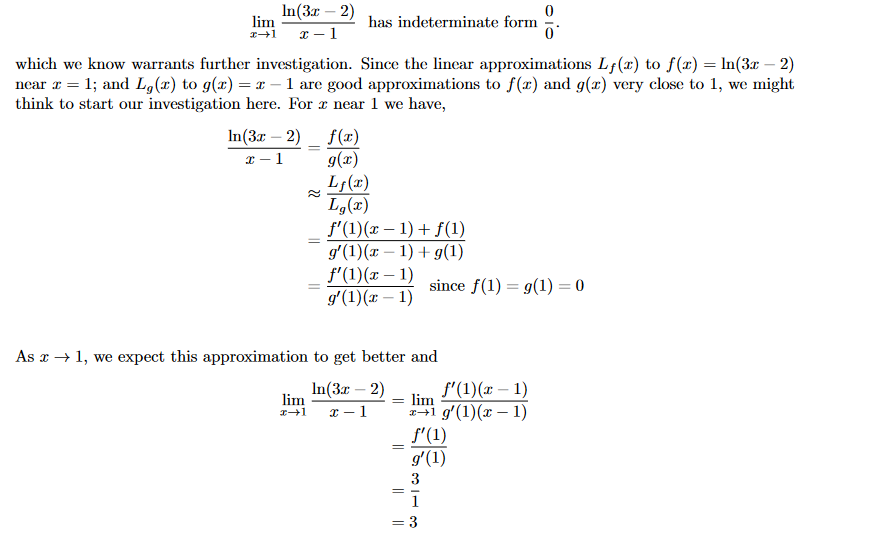L’Hôpital’s rule is a theorem that lets us compute a certain class of limits, using differentiation. The theorem is motivated in part by linear approximation, but the foundations behind the theorem aren’t important to know.
Indeterminate forms
Some functions don’t allow us to evaluate the limits directly, but may still exist. Consider this example:
This evaluates (but is not equal) to the indeterminate form:
Another type of indeterminate form is:
Other indeterminate forms include . Only in these contexts can we use L’Hôpital’s rule.
Theorem
The theorem
If and are differentiable and , then
provided the right-hand side of the equation exists.
If we differentiate the numerator and denominator of the fraction and we continue to get an indeterminate form, we can continue applying the theorem until we get a non-indeterminate form.
L’Hôpital’s also holds for complex analysis.
Some asides
These notes aren’t important — the above are the only things you really need to know.
We note that we didn’t say the example above is equal to , because it has no meaning, i.e., no numerical value.
As for the linear approximation foundations, see this resource from class:
